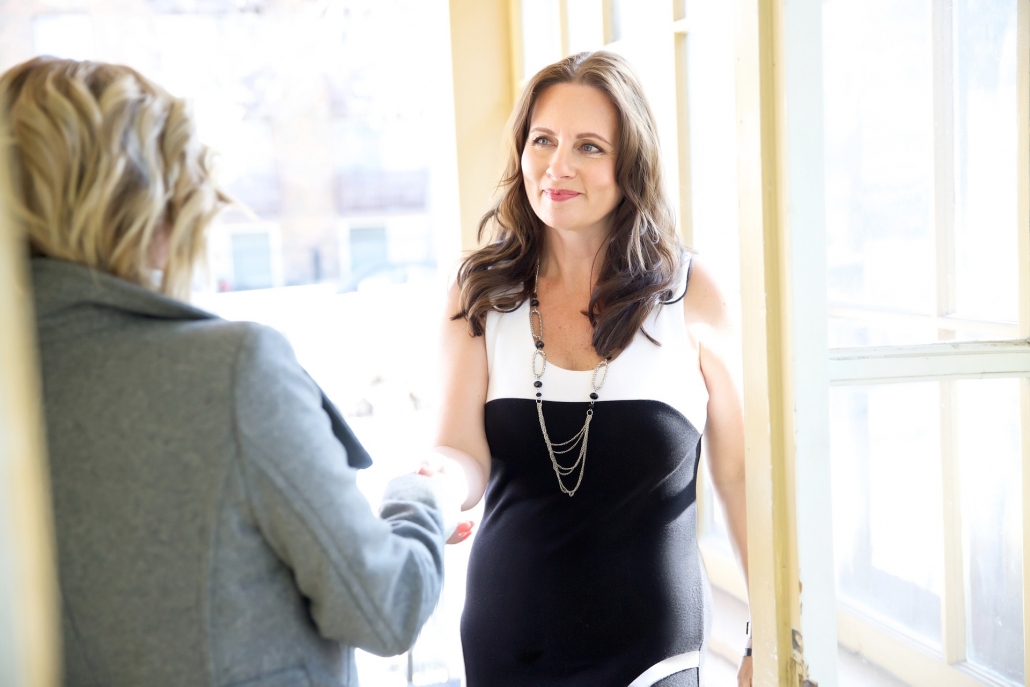It would be great to be able to say that there was one quick and easy method for overcoming depression. Sadly, it does take time. However, this doesn’t mean you will suffer forever or that there are no ways to actively help yourself to feel better each day.
Here we have comprised a guide to better coping with depression and alleviating its affects. We hope some ideas will be useful to you, but remember that this is general information only and you should always seek medical advice to ensure you receive the treatment that is appropriate for you.
Hormones & Depression
One of the most important things that you want to focus on when depressed is getting your hormone levels back up and working again. This is dopamine and endorphins, mostly. When these are low, you will see that your mood will be low, too. There are medicines that will help to get the effects of these hormones, but there are also many natural ways to increase the levels of dopamine and endorphins in your system.
Firstly, there is activity. Exercise is a perfect way to get an endorphins rush. The “runner’s high” is meant to mean that after physical activity, we usually feel very good because our body is alive with endorphins which make you feel happy and energised.
Now, we understand that you may not want to exercise, but we do highly encourage you to do so. Exercise has many health benefits for us, including making for a healthy mind. When your mood is low, the last thing you want to do is exercise, but even a little can do a great deal of good. You needn’t go for a run or to the gym; a home work out circuit of squats, sit-ups, crunches, push-ups, jumping jacks, lunges and the like can definitely do the trick and you can go at your own pace.
Secondly, you will want to get outdoors. Whether it’s for exercise or not, getting outdoors during a low mood can be a quick way to get some relief from it. Being out in nature, taking in the fresh air and the peaceful scenery, can make for a calming atmosphere that gets your hormones working as they should. A brisk walk with no destination, out in nature, will leave you feeling something akin to the “runner’s high”.
Plus, it is ever so important to get the right dose of sunshine each day. When we lack sunlight in our day, we can begin to feel low. It is for this reason that Seasonal Affective Disorder creeps into many people’s lives during the Winter months when the daylight each day is incredibly low. If you are finding that you feel low during the Winter months, it may be Seasonal Affective Disorder that is causing your depression symptoms, so discuss this with your doctor for guidance.
Getting Relief from Seasonal Affective Disorder:
- Opening the curtains as soon as it is daylight
- Get outside in the daylight for as long as possible
- Take Vitamin D supplements if you aren’t getting enough sunlight
- Ensure light and air is in your space during the day (open the windows, turn on the lights, etc.)
- Ensure you are eating well and getting enough exercise
To summarise, to ensure your hormones (particularly dopamine and endorphins) are well regulated, ensure you are moving, eating well, getting outdoors in the sunlight, and actively doing things that bring you joy.
Please note that you should speak to your doctor if you think you are suffering with depression, especially severe depression or suicidal thoughts. You and your doctor can discuss the best method for getting you better, and this may include medication, such as Selective Serotonin Reuptake Inhibitors (SSRIs), which will help to regulate your mood. Don’t be afraid of antidepressant medication if your doctor feels like this is the best cause of action for you.
The antidepressants will take time to work and may take some getting used to, but they are there to help your neurotransmitters and hormones to work properly again. Then, when you are feeling a lot better within yourself, you should also incorporate the methods in this guide to help you combat the depression for good and hopefully ween off the antidepressants (safely, with the doctor’s help only) in time.
Recovering from Depression Takes Time
With depression, you need to allow yourself time to heal. It doesn’t go away in a day, and so if you practice patience, you will be able to deal with it a lot better. Be patient with yourself on the low days. Be patient with the process, patient with the medication and this guide’s practices. Patience will get you through it in the end.
You will need time to grieve, to accept, to grow stronger and happier again. Time will bring back your strength. Time will remind you that you are worth it.
How to give yourself time:
- Journal: write about your feelings, your day, your trials, and your accomplishments before now to remind yourself that time gives and takes, and it is all OK in the end
- Mindfulness: this will be explained in the method below
- Take each day at a time
- Plan things to look forward to in the future, so that the future looks more positive
Mindfulness
Mindfulness is a growing practice nowadays that is imperative for those with depression. Mindfulness is the practice of being present. Being wholly and fully focused only on where you are, and what you’re doing in the present moment.
People with depression can find Mindfulness helpful because it can break their cycle of thinking. You will not be dwelling in the past, where you feel sad about time lost; and you will not be afraid or anxious about the future. Instead, you will be more comfortable and safe living only in the Now; in the present moment.
Breathe into each moment. Be where you are, utterly and completely. Take time to draw yourself back to the present, out of your head, and into the space you are occupying at that moment. What can you see? Hear? Smell? Taste? Feel? Use your five senses to be present and try your best to stay there.
There are many apps, videos, classes, and books to help with active Mindfulness practices. Try apps like Headspace or Calm; try books like Eckhart Tolle’s The Power of Now. Adult colouring books are used for Mindfulness practices, too, as concentrating on staying within the lines of complicated designs requires focus in the Now.
Meditation is perhaps the best way to be present and mindful. It isn’t easy to empty the mind of thoughts, especially negative ones, but with practice it will become easier. The apps mentioned above have meditation guides to help get you started. But meditation through focusing on how the body feels, or on one’s breath, or on a particular affirmation or mantra, will bring you into the present and naturally clear the mind.
Mindfulness should become, with practice, a routine part of your day. However you choose to do it is up to you, but do try to implement periods of mindful behaviour into your everyday life. You can mindfully walk by paying attention to the pavement against your feet, the noises you can hear, the aromas you can smell, or the feeling of the wind. You can mindfully clean, wash your hand, brush your teeth, or during any otherwise mundane task. Just practice awareness, and focus on the present moment, and just like that, you are practising Mindfulness.
For more information, you can also read our beginner’s guide to meditation.

Acceptance
When depressed, we often find ourselves haunted by something that has happened to us. A change in circumstance, a disaster, the loss of a loved one, illness, etc. What can make depression worse, and last for far longer than necessary, is our inability to process what has happened (or is happening) and therefore not accept it.
Acceptance is a very powerful tool for coping with depression. Accepting what happened to you is the first step to healing or tackling it. We must also accept how we feel. Accept that you are feeling low. That you are feeling tired, weak, unmotivated, or hopeless. Accept that you feel this way so that these feelings become something that you don’t beat yourself up for each day – thus worsening their affects.
We must also accept that we are ill; that we need help. Many people with depression do not accept that they are ill and instead hide away from it. Pretending you are OK or running from your problems will only make them worse. Accepting that you aren’t well and that you need help demonstrates strength and a willingness to get better. Accept this and you will gain the strength needed to carry on. Accept that you may need help from others, from medication, from a therapist, and so on.
Once you can accept what’s happened, accept that you’re ill, and accept that you need help, go and get the help that you need to heal. Love yourself enough to help yourself get better and be you again.
Relationships
Our relationships are always ever so important for our health. With depression, relationships become ten times as important. Firstly, loneliness is a great cause for depression. No one wants to feel like they are constantly alone or misunderstood. But on the other hand, depression itself can cause us to feel lonely. We become more isolated and trapped in our minds, therefore believing that we are alone.
You are not alone. Your thinking and your feelings are not wrong; you are not the first person to feel this way. Do not allow the depression to isolate you and cut you off from other people. It is important to utilise the people around you more so now than ever. Tell them how you feel. Ask them for their support. Go to them when you are low. Tell them how they can help you.
Everyone needs good, healing people around them. If you suffer with depression, then you will need your family and friends’ support to get through it. You need people who you know and trust to care for you, inspire you, protect you, and even just cuddle you when you need it (cuddling encourages the hormone Oxytocin in the body, which is relaxing and comforting). Trust those around you with your pain. It doesn’t make you weak or a burden to do so.
Routine
Depression can be this heavy weight that you carry with you throughout your daily routine. It can also completely turn your day upside down, spoiling any chances of maintaining a routine or any sort of balance. But we need routine in our lives, if only a little. Actively trying to keep to a routine, and being self-aware of what you’re doing, is a good way to combat depression’s effects.
Having a healthy, motivating routine goes a long way at this time in your life. Implementing the right things into your routine so that they become a habit can be the best way to getting healthy and back to yourself again. It won’t be easy, especially not at first, but if you want to get better, you will need to try.
Be patient and kind with yourself. If one day it doesn’t work out, don’t throw in the towel; try again tomorrow.
How to keep to a routine:
- Get out of bed every day
- Have something to look forward to
- Have specific plans
- Have work to engage you and give you a sense of accomplishment
- Ensure to include: exercise, healthy eating, tasks, organisation, fun, and socialising into your weekly routine
- Take your medication (if required) at the right time every day
These are important things for anyone, and even more so when depressed. It won’t go perfectly right away, so be patient with yourself and keep trying.
Sleep and Diet
When we are depressed, our sleep and diet is often affected. We either under sleep, or over sleep; under eat or over eat. However, we must try to break this cycle and bring back control. We must try to get back into a healthy medium for our sleep and diet.
Binging on junk food and forgetting to take care of the body is common for depressed patients; it is called comfort eating. Sleeping in late or staying up late are also common. Due to the drop in serotonin, sleep can become fractured and disturbed, but that’s not to say it can’t be reversed. With good sleep hygiene practices, you can get yourself back on track.
How to improve your sleep:
- Track your sleeping in a diary
- Reduce noise in your bedroom
- Get the right amount of activity in each day (don’t be dormant)
- Get sunshine during the day
- Ensure you room is comfortable: not too hot or cold, not bright, not hard or too soft, good posture etc.
- Don’t watch TV in bed
- Wind down before bed: relaxing, none stimulating activity
- Try reading in bed
- Don’t eat too much before bed; don’t go to bed hungry
The same goes for a healthier diet. Remember that good food makes you feel good inside and will aid in your mental health. So, try to view healthy eating like taking medicine each day to reduce depressed symptoms. Getting the right vitamins and minerals into your diet will help to regulate your sleep.
Nutrition is ever so important for everyone, but more so when you are low. Good nutrition from your foods and beverages will encourage your mind and body to feel fit and healthy. A strong mind and body will help you to be fighting fit to combat depressive emotions. Ensure, most of all, that you are drinking plenty of clear water every day to keep you energised to fight off fatigue and keep your brain working the way it should be.
Note that taking antidepressants such as SSRIs can help to regulate your serotonin levels, and, in turn, help to improve your sleep. Have this conversation with your doctor to see if antidepressant medication is for you, or whether some other form of medication might help you get back on track.

Psychologists and counsellors can help you develop strategies to change your thinking
Counselling
It may not come as a surprise to you that seeing a counsellor is one of the best ways to combat depression. Counsellors are licensed professionals who can help you to alleviate depressive symptoms, as well as overcome the obstacles or pitfalls that led to the depression in the first place.
If you have depression, then you will know that there are a lot of mixed emotions, confusion, and hard to deal with elements of your past or your mind that need working through. This is when a counsellor or therapist comes in. They will help you to process your feelings in a healthy, safe way. There are no judgements or wrong answers. They are there to help you and hear your story.
Dealing with the past can be a hard and trying task. There could be elements of the past that you didn’t even realise were contributing to your depression now. A counsellor can help to support you as you navigate your hurtful past, accept what happened, and learn how to move on. They will teach you techniques for moving forwards and how to analyse your thoughts in a healthy way.
Thought analysis can include:
- Are my thoughts negative?
- Do they serve me?
- Are they real? Are they fact? Are they true?
- What can I think that is more accurate? More kind?
- What would I say to a friend who felt this way? Can I say that to myself?
- How do my thoughts make me feel each day?
- Which thoughts are reoccurring frequently?
Counsellors and therapists are good at spotting patterns in our thinking. The reoccurring thoughts that we have are often attached to a Core Belief that we have about ourselves or our lives. These Core Beliefs are a lot harder to shift than negative thoughts, but with the helping hand of your counsellor, you can use Cognitive Behavioural Therapy to challenge reoccurring thoughts and then eventually replace these thoughts.
When it comes to Core Beliefs, we often have a Negativity Bias and create a Self-Fulfilling Prophecy. This is where you look for “evidence” that supports your Core Beliefs and negative thinking, instead of seeing the evidence that would disprove it.
For example, say you had the Core Belief that you are “Boring”. You would pay attention to conversations with people and only focus on the “evidence” where people didn’t laugh or didn’t talk to you, thus solidifying in your mind that you are a boring person. When in actual fact, the majority of the time people were laughing and asking you questions and enjoying your company.
People who are depressed have a tendency to do this on a larger scale. Their perception can become tinted. The feeling of hopelessness can be so strong that it leaks out and blackens all you see, when in reality, things aren’t quite as they appear. This isn’t your fault. This is where a counsellor or therapist can really help, by helping to get you thinking differently, challenging what you believe, and seeing the world around you in a new light.
Many doctors suggest an eclectic approach to recovery from depression, especially severe depression. This means trying antidepressants and counselling together, alongside good health practices to help you to get better. Please have this conversation with your doctor to see the best course of action for you personally.
Fun
Another thing that can be lacking in your life when you are depressed is fun. People with depression often lose interest even in the things they usually love doing. Fatigue and disinterest are common depressive symptoms. However, if you actively try to bring that fun back into your life, you can begin to combat the depression.
This may sound silly or ignorant to those with depression, which is a very serious mental illness; however, fun is important for all of us. Fun brings light-heartedness and freedom into our lives. Fun relives tension and stress. Fun relaxes us and gives us a healthy dose of the dopamine hormone which makes us feel good.
So, to try to get relief from depressive feelings, you will need to include things that you find fun into your daily routine. Give yourself a break and allow yourself time for fun. Don’t do what others think is fun; do what is fun for you. This should be a priority in your day, and you need to allow it to happen without remorse or regret. Don’t worry about anything else. Let it lift your mood naturally.
Organisation
The saying goes that “a messy room makes for a messy mind.” This is easy to believe because how can we feel organised and clear-headed when our space is cluttered and dirty? It’s hard when you are depressed to keep things orderly. It’s hard to have the motivation to do anything at all, at times. However, if you can draw up the energy to just do one room or one task every other day, you will soon find that in a week, your space is looking better and you are feeling better, too.
De-cluttering is very therapeutic. The rise of minimalism has had people feeling light and free from material possessions, in turn helping to keep the mind clear and free from added worries. We’re not saying that you should become a minimalist, of course, but ridding your space of unnecessary and burdening clutter will help to ease your mind – guaranteed.
Once you have rid your space of unneeded clutter, you can take some time to decorate or rearrange your space. Again, this can be very therapeutic as it’s sort of a way to reset your space and feel like new. A clean slate, an altered environment, can help you to feel less stuck in the past, less burdened, and more in control of your life – all things of which can help you to feel better about your circumstance and get relief from the depression.
Make an active effort to keep things clean and tidy in your space, and you will soon realise that you are in a better place (both figuratively and literally) than you once thought.
While going through depression, it is important to remind yourself that time heals all wounds. If you have become depressed through a set of circumstance, then trust that with time, support, compassion (for yourself), and strength, you can get through it and be well again. If you are depressed due to a medical or physiological reason, such as a chemical imbalance of the brain that has always been present, then seeing your doctor is imperative. In fact, anyone with depression should see their doctor for guidance. Through discussion with your doctor, you can decide the best course of action for combating the depression, whether that is therapy, medication, or holistic healing.
Nevertheless, you are not alone, and you won’t feel this way forever. Trust your doctor, believe in yourself, and reach out for help. You can do this.



